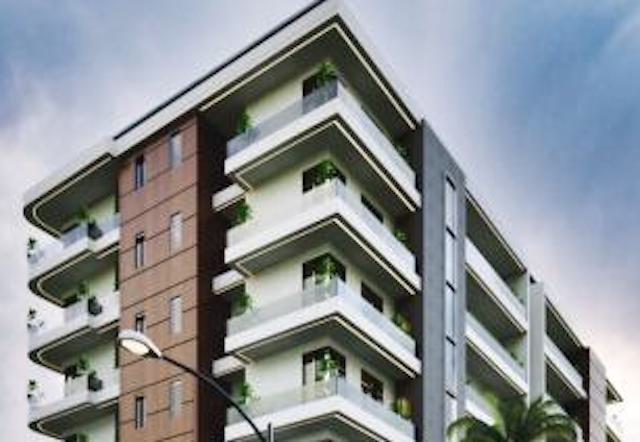Paragraph 1: Soaring Luxury Real Estate Prices in Lagos
The Lagos luxury real estate market has witnessed a dramatic surge in prices over the past 18 months, with prime two-bedroom rentals now commanding as much as N38 million annually. This upward trend extends across various property types, with one-bedroom luxury flats fetching N180 million and three-bedroom units in the coveted Old Ikoyi area averaging between N700 million and N1.2 billion. At the pinnacle of the market, opulent penthouses, often featuring additional servant quarters, can reach a staggering N8 billion. This price escalation is primarily attributed to a confluence of factors, including robust demand from diaspora investors, particularly those based in the US and UK, high-net-worth individuals (HNIs), and expatriates seeking premium living experiences. These discerning buyers are drawn to the allure of comfort, exclusivity, and the integration of smart living features within secure, gated communities.
Paragraph 2: Drivers of the Luxury Real Estate Boom
The Nigerian luxury real estate market is experiencing significant growth, fueled by several key drivers. Diaspora investors, seeking investment opportunities and a foothold in their homeland, play a prominent role. HNIs, seeking to diversify their portfolios and acquire prestigious properties, also contribute significantly to the demand. Expatriates, working for multinational companies or international organizations, often prioritize high-quality accommodation in secure and well-amenitized environments. This demand is further bolstered by the increasing appeal of gated communities, which offer enhanced security, sustainable infrastructure, and advanced technological features. Moreover, the global luxury real estate market is projected to expand significantly in the coming years, further reinforcing the attractiveness of this investment segment. South African developers are also beginning to recognize the potential of the Nigerian market, adding another layer of investment activity.
Paragraph 3: Demand for Space and Prime Locations
Upper-middle-income buyers, driven by a desire for spacious living and access to premium amenities, are also playing a crucial role in shaping the Lagos real estate landscape. Families, in particular, prioritize properties with ample room for comfortable living. The desirability of certain neighborhoods is further amplified by their proximity to reputable schools, efficient waste management systems, superior air quality, and an overall upscale ambiance. These factors, combined with the growing demand, have incentivized developers to undertake ambitious construction projects. For example, Quantum Properties is developing two significant high-rise residential projects – Quantum Luxury Towers and Metropolitan Towers – on Ozumba Mbadiwe Street in Victoria Island, reflecting the confidence in the market’s continued growth.
Paragraph 4: Ongoing Development Projects and Challenges
The construction boom in Lagos, driven by the increasing demand for luxury properties, showcases the resilience of the real estate sector. Quantum Luxury Towers, designed by SVA Architects and CKR Consulting Engineers, with Cappa and D’Alberto as the main contractors, is slated for completion in December 2027. Metropolitan Towers, a 28-story residential development designed by XBD Collective, is being built by El-Alan Construction Company. These projects represent a significant investment in the city’s skyline and cater to the rising demand for high-end living spaces. However, the report also acknowledges the persistent challenges that hinder broader housing development in Nigeria, including homelessness, lack of secure property rights, and limited access to financing options, particularly for lower-income segments of the population.
Paragraph 5: Nigeria’s Hospitality Sector and Investment Landscape
Nigeria’s hospitality sector is also experiencing significant growth, with the country boasting the largest hotel development pipeline in Sub-Saharan Africa. With 7,281 rooms across 47 hotels in the pipeline, and 2,868 rooms currently under construction, Nigeria surpasses other key markets like South Africa and Ethiopia. This growth is attributed to several factors, including the influx of global investment seeking high returns, rapid urbanization, increasing domestic travel, and robust corporate activity. The development of high-profile projects, such as the Radisson Blu Hotel in Abuja and the Marriott Executive Apartments in Lagos, further underscore the strong demand for premium business accommodation. The leading cities in terms of air traffic, including Lagos, Abuja, and Port Harcourt, are witnessing the most concentrated hotel development activity, reinforcing their status as key economic hubs.
Paragraph 6: Expansion and Consolidation in African Tourism
The investment landscape in African tourism is evolving, with strategic acquisitions and partnerships shaping the industry’s trajectory. Africa Travel’s acquisition of Pollman’s Tours & Safaris, a well-established Kenyan tourism company, exemplifies this trend. This move allows Africa Travel to expand its footprint in the East African market while leveraging Pollman’s extensive network and expertise. The acquisition, facilitated by Alterra Capital’s investment in Africa Travel, follows a pattern of consolidation and investment in the African tourism sector, as demonstrated by Alterra’s acquisition of a majority stake in the Java Coffee chain. These developments highlight the growing interest in African tourism and the potential for further consolidation and expansion in the industry.














